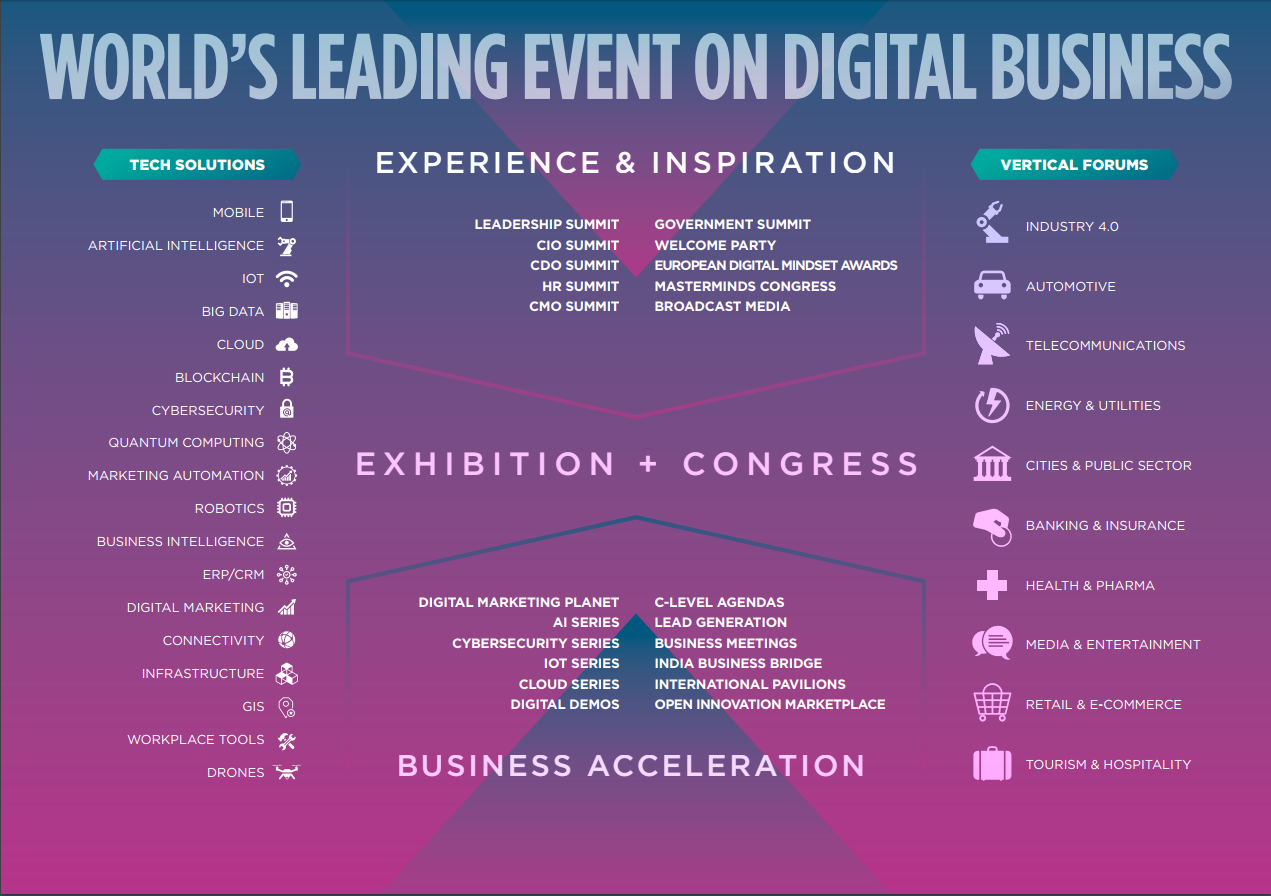 IFEMA, Madrid 22-24 Mayo
IFEMA, Madrid 22-24 Mayo
Companies face nowadays a myriad of challenges and opportunities that have come in the wake of the digital revolution. Sectors as diverse as agriculture, health, banking, industry, retail and tourism all suffer the effects of this global trend. Nevertheless, new business models have been constantly emergining thanks to innovation.
Digital transformation is the path that any company and public institution wishing to survive in today’s world must follow.
The speed with which technology has democratised domestic life has not been reflected in the business world. New business models created by start-ups and technology companies have appeared and they have gained a significant market share among companies that are based on traditional models.
Accordingly, IT departments have become the focus of this strategy in the business world. They are leading the transition from the current obsolete and expensive management models and infrastructures and becoming real innovation catalysts in the process.
The main goal is to offer solutions for different business areas, not just to help improve the competitiveness of companies but also to help promote this transformation while ensuring speed and safety.
At the same time, CMOs find themselves overwhelmed by the presence of consumers who are increasingly techsavvy and dynamic, and they have started to introduce digital marketing strategies to help keep up with the pace of the current market and to make sure they do not get left behind.
The Digital Enterprise Show is aimed at CEOs, CIOs, CMOs and HR departments, and together with the most innovative cutting-edge technology companies, they are invited to meet the most innovative products and solutions as well as the skills required to help European SMEs and large corporations join the digital transformation.
This is a global platform that allows attendees to learn, experience, meet, compare and buy the most advanced solutions. It is a must-attend event for any business leaders who are ready to face up to the challenge of digitally transforming their businesses and becoming part of the new digital economy, because otherwise they will find themselves isolated from the market and left behind.

More information
